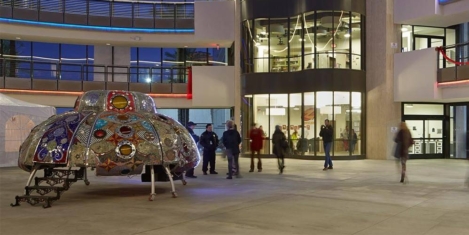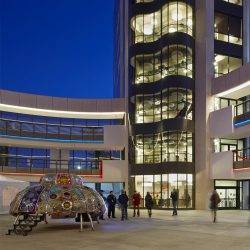February 27, 2019
Digitisation and culture of uncertainty lead employees to seek stability
 Job security is the top reason employees in the UK joined their company, and also the main reason they stay, according to Mercer’s 2019 Global Talent Trends study. With close to one in three employees being concerned that AI and automation will replace their job, senior managers are also worried about the effects of digitisation, with nearly three-quarters (71 percent) of executives in the UK predicting t significant disruption in the next three years, compared to 23 percent in 2018. Mercer’s global findings reveal a similar story finding that as executives focus on making their organisations “future-fit”, significant human capital risks – including the ability to close the skills gap and overcome employee change fatigue – can impede transformation progress. Addressing these concerns is paramount, given that less than one in three executives rate their company’s ability to mitigate the effect on employees as very effective.
Job security is the top reason employees in the UK joined their company, and also the main reason they stay, according to Mercer’s 2019 Global Talent Trends study. With close to one in three employees being concerned that AI and automation will replace their job, senior managers are also worried about the effects of digitisation, with nearly three-quarters (71 percent) of executives in the UK predicting t significant disruption in the next three years, compared to 23 percent in 2018. Mercer’s global findings reveal a similar story finding that as executives focus on making their organisations “future-fit”, significant human capital risks – including the ability to close the skills gap and overcome employee change fatigue – can impede transformation progress. Addressing these concerns is paramount, given that less than one in three executives rate their company’s ability to mitigate the effect on employees as very effective.






















 With the rise of both cloud-based technology and the worldwide gig economy, the last ten years of the 21st century have seen some near-revolutionary changes in workplace practice. Entrepreneurs everywhere have been more than happy to make use of these developments, taking advantage of the new business models these changes have brought. For example, IDG found that
With the rise of both cloud-based technology and the worldwide gig economy, the last ten years of the 21st century have seen some near-revolutionary changes in workplace practice. Entrepreneurs everywhere have been more than happy to make use of these developments, taking advantage of the new business models these changes have brought. For example, IDG found that 









February 21, 2019
How do we reach consensus about what constitutes good design? 0
by Paul Goodchild • Comment, Furniture, Technology, Workplace design
(more…)